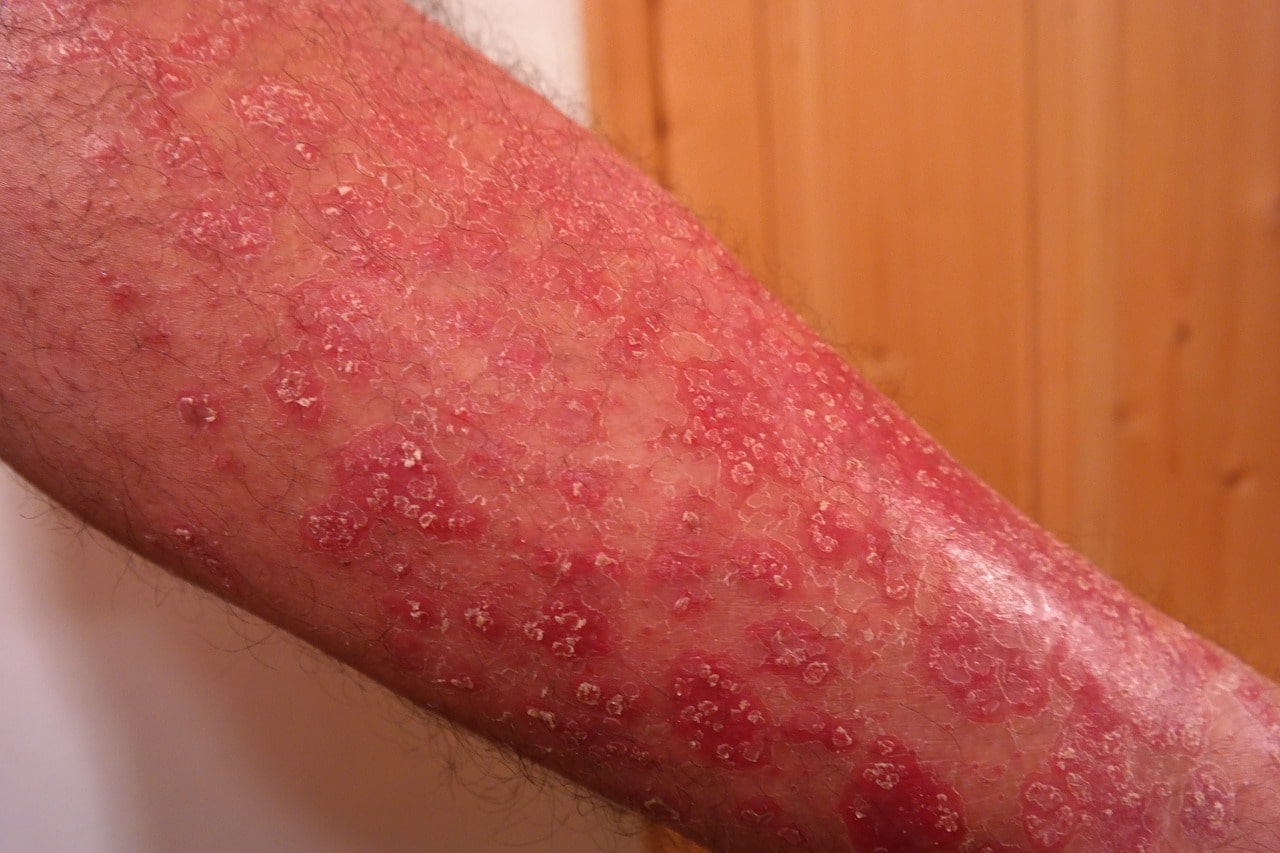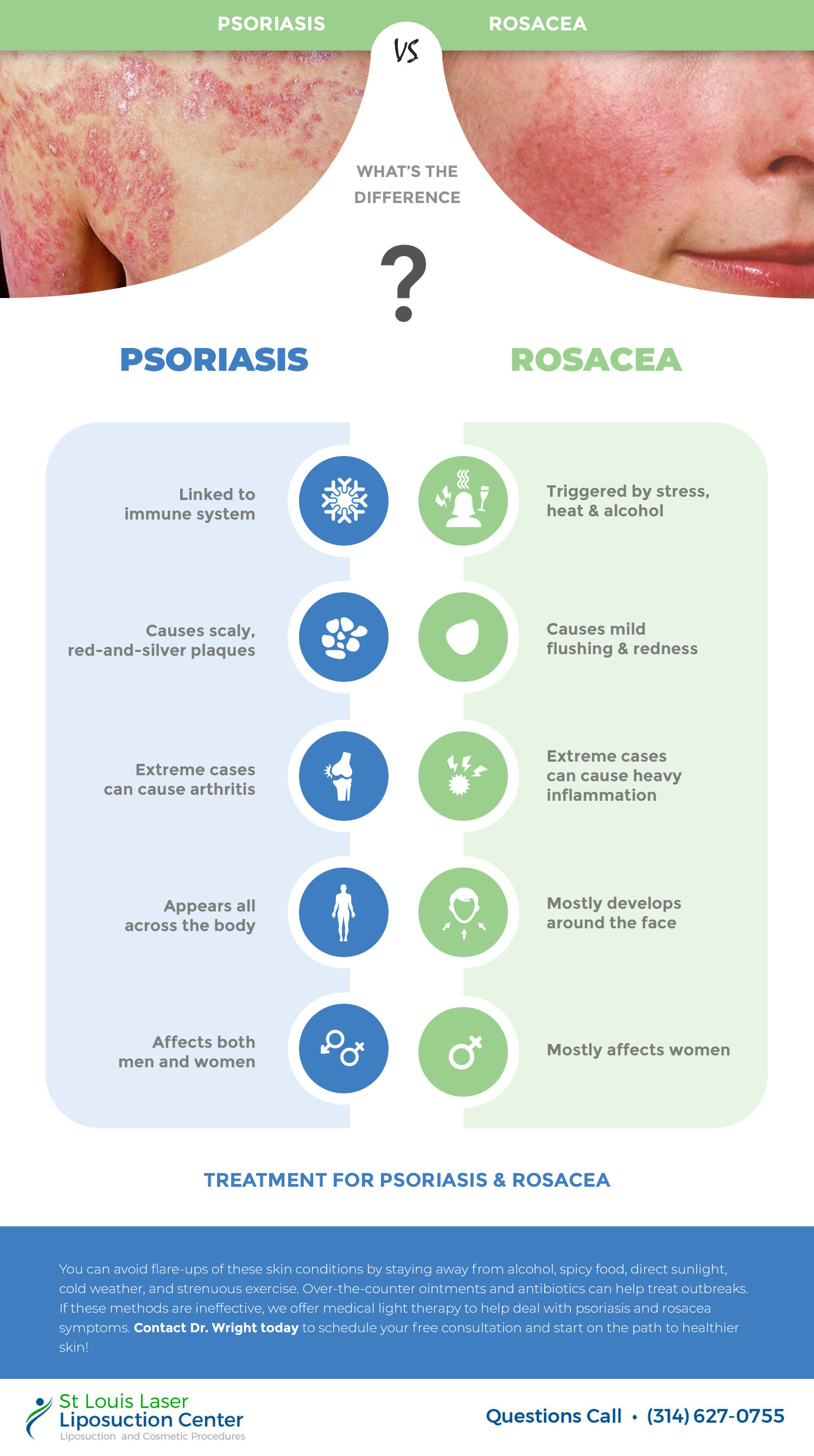Two of the most common chronic skin conditions that impact millions of people each year are psoriasis and rosacea. From skin redness to scaly patches, these skin conditions can make life difficult. Here is our breakdown on psoriasis vs rosacea, how they impact millions of people each year, and how they can be treated:
What is Psoriasis and Rosacea?
Psoriasis differentiates itself from rosacea by appearing as red and scaly plaques all across the body. Rosacea on the other hand only afflicts the face, more commonly across the cheeks. Mild rosacea cases can start off as flushing across the face before turning into acne and thickened skin for more extreme cases. Unfortunately, approximately 21 million people have been diagnosed with psoriasis and rosacea, making them common chronic skin conditions.
What Causes Psoriasis and Rosacea?
Psoriasis and rosacea are similar in prevalence but have vastly different causes. Psoriasis is primarily due to a faulty immune system making the skin turn scaly and red or silver in color. This common skin conditions impacts men and women equally, typically during adulthood. It can also develop under the presence of infections, cold weather, and alcohol use. Fortunately, psoriasis is not a contagious condition.
Rosacea is typically caused due to external factors such as spicy foods, sunlight, and strenuous exercise. Other factors that are shared between rosacea and psoriasis include alcohol use, cold weather, and stress. Rosacea more commonly develops in women, especially those in menopause.
Symptoms of Psoriasis Vs Rosacea
Symptoms of psoriasis range from red spots and bumps to red and silver scales in more severe development. Arthritis has also been known to develop in older individuals with psoriasis. Rosacea contains symptoms in the face and can appear as flushing, redness, pink bumps, and inflammation around the nose.
Treating Psoriasis and Rosacea
These two skin conditions can be treated with over-the-counter ointments and antibiotics if caught early enough. You can also reduce the appearance of rosacea by cutting out potential causes like spicy food and alcohol. When these treatments do not work, more intensive treatment may be required. We offer phototherapy, also called light therapy, that can help reduce the appearance of psoriasis and rosacea.
Treatment with the St. Louis Laser Liposuction Center
If you are seeking additional treatment for your psoriasis or rosacea, do not hesitate and call the St. Louis Laser Liposuction Center. Our phototherapy treatments may be just what you need to help alleviate this chronic skin condition. Call our office today for your free consultation and see if our treatment options are right for you.


